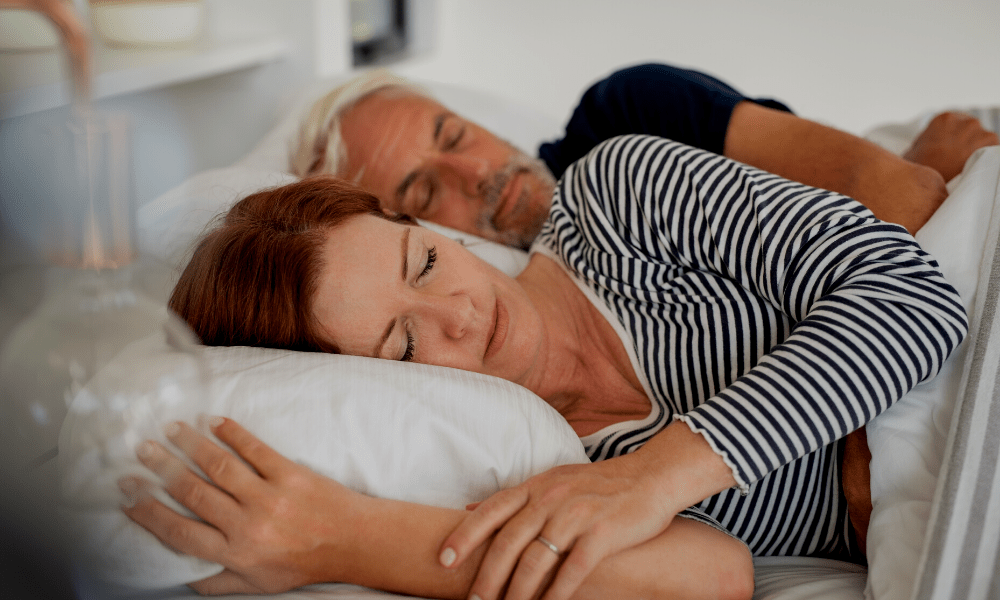Sleep Part 1, Why It’s Important

The Benefits of Getting the Right Amount of Sleep
Everyone knows by now that if they don’t get enough sleep, they usually feel tired and irritable the next day, and that having a good night’s sleep makes them feel better. Why then is most of the population NOT getting enough sleep? Scientists are now seeing how detrimental continued lack of sleep is currently affecting society’s health, and not just the obvious feelings of being tired and irritable that we all know too well.
Besides decreasing longevity, science is proving that getting less than 6-7 hours of uninterrupted sleep each night increases risks of developing disease and illness. During your sleep hours the body is repairing the millions of cells that are broken down each day and replacing those cells, as well as repairing and healing the body. The number one health issue is North America today is Heart and Stroke Disease. Lack of sleep has been associated with worsening of blood pressure and cholesterol. It is now proven your heart will be healthier if you get between 7 and 9 hours of sleep each night.
Memory loss is on the up-rise within every age group, especially the baby-boomers. Getting enough sleep is imperative for the brain to function properly. While your body is sleeping, your brain is busy processing your day. Your dreams and deep sleep are an important time for your brain to make memories and links. Getting more quality sleep will help your memory and increase your ability to process your thoughts during the day.
Sleep reduces stress. When asleep the body is not producing as many stress hormones. However, that said, if your body has produced too many stress hormones during your wakeful period, this may contribute to a vicious cycle of not being able to get to sleep or stay asleep. Relaxation techniques such as meditation or yoga, or simply doing more exercise during the day such as walking or taking the stairs at work can help with stress reduction getting you ready for an easier more restful night’s sleep. Stress hormones also contribute to inflammation, another health issue that is on the rise. All pain is caused by inflammation with many names associated with these syndromes such as Fibromyalgia, and anything that ends with “itis” such as arthritis. Inflammation is one of the leading causes of deterioration of your body as it ages.
Stress hormones are not the only hormones and chemicals affected by lack of sleep, ALL hormones and chemicals that govern our bodily functions are affected. It’s now believed that hormones affecting our weight can be compromised due to lack of sleep, thus contributing to an ever increasing over-weight society. Depression and the lack of serotonin (hormone) due to lack of sleep is another national phenomenon.
Researchers are now saying that sleep may also prevent cancer. Shift workers that are exposed to light at night show a reduced level of melatonin, a hormone that is thought to both make us sleepy and protect against cancer. This is one of the primary reasons to make sure your bedroom is completely dark, and if not, you can take measures to add black-out drapes/blinds or wear an eye mask to block out any light.
Lastly, there is an increase in undiagnosed sleep-apnea. Doctors are seeing more and more children and not just adults that suffer from this serious health issue, including ADD/ADHD. Sleep-apnea is when someone snores heavily, stops breathing thus reducing oxygen to the brain and heart, and wakes up numerous times gasping for breath. If you know someone or think you may have sleep apnea with these tendencies, it would be paramount to get tested at a sleep apnea clinic. The longer you go without proper oxygen during your rest period, the more damage it can do to your organs, primarily your heart. Sleep apnea can be corrected with various portable air flow devices that can be worn during sleeping hours. Many insurance companies cover all or portions of these devices.
